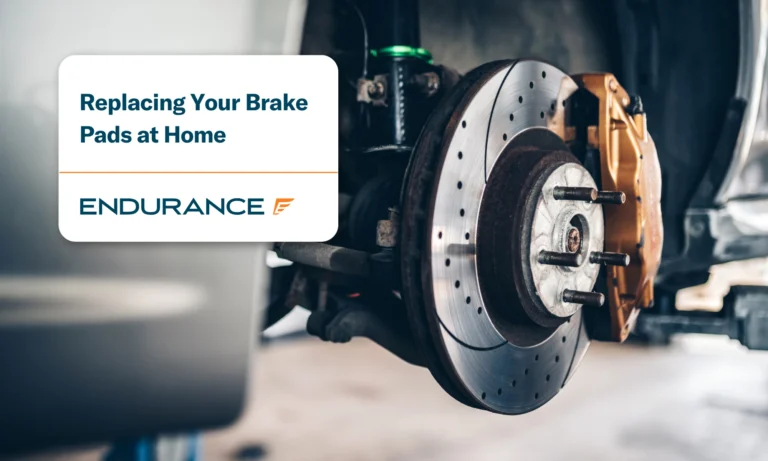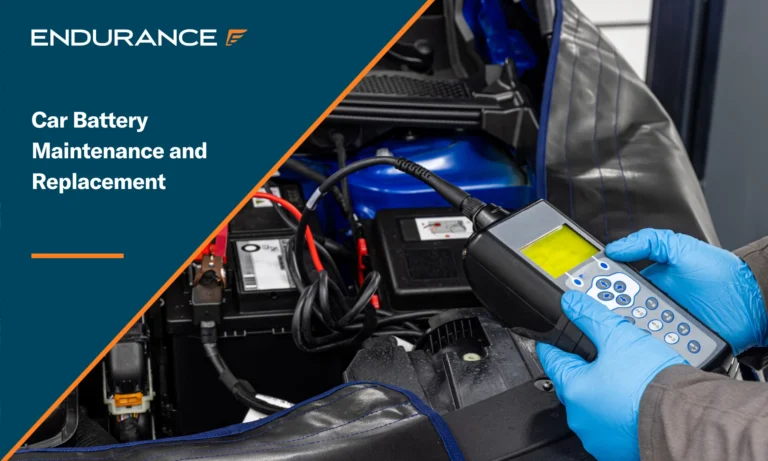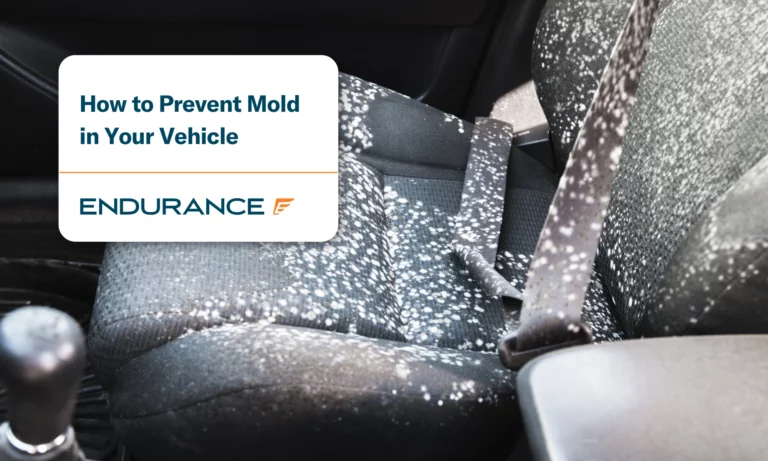What Causes Oil to “Disappear” in Your Car’s Engine?

As a vehicle owner, there is nothing better than hopping in the car and hitting the road on a road trip. However, a road trip can easily be cut short by an engine malfunction, leaving you stranded on the side of the road.
One of the most important maintenance items a car owner will need to do is change the oil and ensure the oil level does not get low. Let’s look at what causes oil to disappear in your car’s engine.
4 Common Causes of Oil Loss
There are several different reasons for engine oil loss. It is important to diagnose the issue correctly to ensure you are making the right fixes and that your engine is repaired correctly. Letting this issue go undiagnosed or unrepaired can result in larger issues down the road, including a total failure of your engine.
1. Oil Leaks
One of the most common causes of oil loss in a car engine is an oil leak. Engine oil is used throughout various components of your engine to lubricate components, so there are many different places you can develop an oil leak. Some areas of concern for oil leaks in the engine are the oil pan gasket, the valve cover gaskets, and the rear main seal on rear-wheel drive vehicles. While many oil leaks may seem slow, they can lead to bigger issues and slowly drain your oil to dangerous levels if left unchecked.
2. Engine Wear and Oil Consumption
Oil consumption refers to the amount of oil your engine consumes during normal operation. This is usually different than an oil leak as oil consumption issues center around when oil is burned up by the engine, effectively “disappearing” in your engine. The engine in your car is built with specific tolerances to a specific amount of oil where it is needed for lubrication. As these parts wear, more oil is allowed past piston rings, seals, and gaskets, leading to more oil consumption.
3. Evaporation
The oil in your engine is also susceptible to evaporation in some extreme cases. This can happen by using low-quality oil, allowing your engine to operate at higher-than-normal temperatures, and not changing your oil at the recommended intervals. When exposed to higher-than-normal temperatures, engine oil can break down, reducing its effectiveness and leading to evaporation of the oil.
4. Inadequate Maintenance
The last common cause of oil loss in your engine is a byproduct of inadequate maintenance. Your engine oil should be changed anywhere from every 3,000-5,000 miles or 3-6 months, whichever occurs first. To determine when your engine oil should be changed, reference your user’s manual. By neglecting regular maintenance, your engine oil will break down over time, leading to more friction and heat exposure to critical engine components. This can cause engine failure and costly repairs over time.
Signs of Oil Loss
Engine oil loss can be tricky to catch as you will need to either look for leaks, check your oil levels frequently, or watch for a low oil level light. Let’s take a look at a few common signs of oil loss.
Low Oil Levels
The easiest way to check for and prevent oil loss is by periodically checking your oil levels. After an oil change, check your dipstick oil level and record the level for reference. Every two weeks, check your oil level to ensure there has not been a loss. Keeping a running log of your oil level will easily indicate if your engine is losing oil.
Visible Leaks
A tell-tell sign of oil loss is a leak. Leaks can be detected by noticing oil pooling under your vehicle or by oil dripping down the side of your engine. Since spotting an oil leak on the ground can be difficult, it is important that you periodically visually inspect your engine to check for oil leaks. You will want to check common areas such as the valve covers, oil pan gaskets, and timing cover gaskets.
Engine Noise
Since the primary job of engine oil is to lubricate your internal engine components, a byproduct of this is ensuring your engine operates at a normal noise level. Once your engine oil starts to get low, your internal components will start to make more noise as the metal components will be rubbing together with little to no lubrication. If your engine starts to operate at a louder-than-normal level, you might want to check your engine oil level.
Preventative Measures and Maintenance Tips
In order to keep your engine oil from getting low or from being consumed by your engine, there are a few preventative measures and maintenance tips you can use.
Regular Oil Checks
One of the most important maintenance tips to keep your engine oil from disappearing and running at its best is to change your oil at regular intervals. The oil in your engine is supposed to be changed at specific intervals as outlined in your owner’s manual. By keeping your engine oil changed, you will prevent your oil from breaking down past the point of being effective. Over time, oil can break down due to overuse and constant exposure to high temperatures.
Use High-Quality Oil
Using high-quality oil is another great way to prevent oil leaks. Higher-quality oils have better compounds that allow them to be most effective at lubricating your engine. It is always recommended to use the manufacturer’s suggested oil in your owner’s manual, but if you are not able to purchase the specific brand, using a well-known brand can help ensure your engine oil is high-quality.
Checks For Leaks
As previously mentioned, one of the most common signs of oil disappearing in your engine is a physical oil leak. When changing your oil or after you have had your oil changed, it is a good idea to check over your engine and engine bay for any signs of an oil leak. You will want to look around gaskets, under the oil pan, and around the valve covers for any signs of leakage.
Monitor Oil Consumption
Lastly, if you suspect that your engine is losing oil, monitor how much oil you are losing by checking your oil levels weekly. You can do this by looking at your oil dipstick and notating where your oil levels are at. This will give you a clear indication of whether or not you have an oil leak and, if you do, how severe it might be. If you can determine that you do have an oil leak, have your vehicle seen by a trusted mechanic as soon as possible.
The Role of Extended Warranties
From the factory, all new vehicles are equipped with warranties that protect you from unexpected breakdowns. However, once these factory warranties expire, you will be responsible for any repairs out-of-pocket. By purchasing a vehicle service contract or an extended warranty from a third-party provider, you can get factory-warranty-like coverage that will keep your most expensive components covered in the event of a breakdown.
Engine Oil FAQs
Why is my oil disappearing but no leak?
Your engine may be burning oil due to worn piston rings or valve seals, or it could be leaking internally into the engine.
How do you fix an engine that burns oil?
Fixing an engine that burns oil may involve replacing worn piston rings, replacing valve seals, or repairing any internal leaks. Regular oil changes and using high-quality oil can also help reduce oil consumption.
Is my PCV valve causing oil consumption?
Yes, a malfunctioning Positive Crankcase Ventilation (PCV) valve can cause oil consumption by allowing excessive oil vapor to be drawn into the engine’s intake manifold and burned in the combustion chamber process.
Why choose Endurance?
With an Endurance auto protection plan, you can choose from a variety of coverage plans, from the simple drivetrain coverage that keeps your engine and transmission covered to the Supreme plan, which offers the most comprehensive coverage available.
Endurance offers extended warranty coverage options for both new and used vehicles, including cars over 20 years old, certain luxury models, hybrids, and select commercial vehicles. As an Endurance customer, you’ll receive benefits like 24/7 roadside assistance, rental car reimbursement, and trip interruption coverage. Additionally, Endurance offers a 30-day money-back guarantee. If you’re not satisfied with your mechanical breakdown coverage, you can cancel and receive a refund (refer to your contract for details).
Find out more about Endurance and get a FREE quote. You can also visit our eStore to get instant plan and pricing details, or if you prefer personalized assistance, call (800) 253-8203 to speak with an Endurance plan advisor.
Visit our informative blog with expert-written articles covering various topics such as maintenance tips, dealership repairs, bumper-to-bumper coverage, and car reviews.













Alex has worked in the automotive service industry for over 20 years. After graduating from one of the country’s top technical schools, he worked as a technician achieving a Master Technician certification. He also has experience as a service advisor and service manager. Read more about Alex.